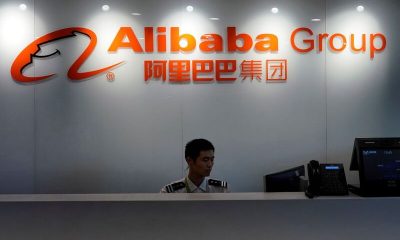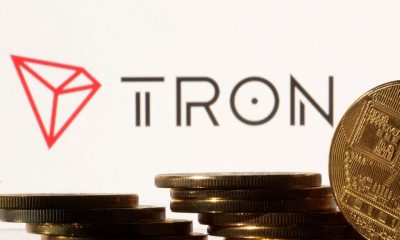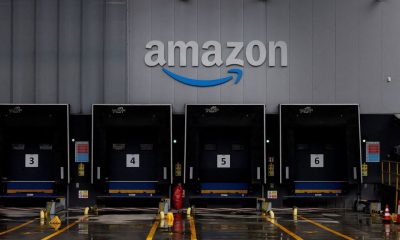Tech
US authorities reveal antitrust blueprint targeting Big Tech.
In a significant move to regulate the digital landscape, US antitrust enforcers have taken a proactive stance by issuing new merger guidelines for digital platforms. The guidelines aim to address concerns surrounding potential anti-competitive practices and ensure a fair and competitive market environment. This article explores the implications of these guidelines on digital platforms and the broader tech industry.
Understanding the New Merger Guidelines
The newly introduced merger guidelines demonstrate the US antitrust authorities’ growing scrutiny over digital platforms and their market influence. These guidelines outline a more comprehensive evaluation process for mergers and acquisitions involving tech companies, focusing on market dominance and potential competitive harm.
Tackling Anti-Competitive Practices
With the increasing dominance of certain digital platforms, there have been growing concerns about their potential to stifle competition and limit innovation. The new guidelines signal a concerted effort to identify and address anti-competitive practices, fostering a level playing field for all players in the tech industry.
Evaluating Market Dominance
One of the key aspects of the new merger guidelines is the evaluation of market dominance. Digital platforms with significant market share may face heightened scrutiny during the merger review process to prevent monopolistic behavior and promote healthy competition.
Safeguarding Innovation and Consumer Choice
The antitrust enforcers’ focus on promoting innovation and protecting consumer choice is at the core of the new guidelines. By preventing the consolidation of power among a few tech giants, the authorities aim to encourage a diverse and dynamic tech ecosystem that benefits consumers and fosters innovation.
Impact on Mergers and Acquisitions
Introducing these new guidelines will likely impact mergers and acquisitions within the tech industry. Companies seeking to merge or acquire other digital platforms must undergo more rigorous scrutiny to ensure compliance with antitrust regulations.
Broader Implications for the Tech Industry
The issuance of new merger guidelines signals a broader shift in the regulatory landscape for the tech industry. It underscores the growing focus on digital platform regulation and sets a precedent for other countries to adopt similar measures to ensure fair competition in the digital space.
Conclusion
Issuing new merger guidelines by US antitrust enforcers marks a pivotal step towards regulating the digital landscape and ensuring a fair and competitive market environment. The authorities aim to protect consumer interests and foster innovation within the tech industry by addressing concerns surrounding market dominance and anti-competitive practices. The impact of these guidelines on future mergers and acquisitions and their broader implications for the global tech landscape will undoubtedly shape the trajectory of the digital economy in the years to come.
Tech
Chinese retailers offer deep iPhone 15 discounts.
Chinese e-commerce sites, including JD.com (9618. HK), PDD Holdings (PDD.O), and Alibaba’s (9988. HK) Taobao, are giving steep discounts on Apple’s (AAPL.O) newest iPhone 15, with some retailing for as little as 1,501 yuan ($205.14) less than the suggested retail price.
Analysts claim that compared to its predecessor, the iPhone 15 has not been selling as well in China. In the first 17 days following its market introduction, Counterpoint Research reported this week that sales of the iPhone 15 in China were down 4.5% from those of the iPhone 14 in that country.
Apple periodically permits its Chinese partner merchants to give discounts to increase demand. However, as customers tighten their pockets in a weakening economy, Chinese e-commerce platforms have also engaged in a “value for money” war, discounting a prominent feature of an approaching annual Singles Day shopping festival.
Unlike Apple’s official pricing of 8,999 yuan, JD.com offers the 512 GB iPhone 15 for 7,498 yuan. When questioned about the reduction, the business claimed that it was consistent with the low-price selling strategy it had started this year.
According to Reuters’ research, Pinduoduo is selling the 128 GB iPhone 15 Plus for 6,098 yuan, which is 900 yuan cheaper than Apple’s suggested retail price of 6,999 yuan.
On Alibaba’s e-commerce site Taobao, the 512 GB iPhone 15 Pro Max, which costs 11,999 yuan at Apple’s store, is available for 10,698 yuan.
Requests for comment from Apple, Pinduoduo, and Alibaba were not immediately fulfilled.
The Economic Observer weekly publication broke the news of the iPhone 15 reductions on the e-commerce sites on Monday.
Tech
Biden administration picks 31 regional tech hubs to spur US innovation.
From 370 applications, the U.S. Commerce Department announced on Monday that it had selected 31 regional tech centers. These places are now eligible for $500 million in government financing to support innovation and growth in various industries.
According to Secretary of Commerce Gina Raimondo, the program aims to diversify the American economy away from traditional tech strongholds like Silicon Valley, Seattle, and Boston.
“Those tech ecosystems are concentrated in just a few places around the country,” Raimondo stated. They don’t accurately represent our nation’s potential. They don’t have a monopoly on brilliant concepts.
To encourage greater private sector investment in sectors like the manufacture of semiconductors, clean energy, and batteries for electric vehicles, President Joe Biden believes that the government should help support important sectors.
The regional technology initiative, according to Lael Brainard, National Economic Director for the White House, “makes smart public investments in critical technologies in every region of the country.”
This month, the Biden administration announced that seven “hydrogen hubs” in 16 states would split $7 billion to help the new business get off the ground.
The designated regional tech clusters are concentrated on fields like semiconductors, clean energy, essential minerals, biotechnology, artificial intelligence, and quantum computing. They are in states including Montana, Wisconsin, upstate New York, Vermont, Illinois, and Puerto Rico.
“People shouldn’t have to move to get a good job,” Raimondo added, pointing out that many centers are in small communities.
While an Oklahoma center aims to commercialize autonomous systems in industries like agriculture and pipeline inspections, Washington state and Idaho hubs will concentrate on creating new materials for more fuel-efficient next-generation airplanes. Personalized medicine is being developed as part of a Wisconsin effort.
No classification as a hub ensures federal money.
According to Raimondo, the government would give up to $75 million to each of the 31 IT clusters the following year.
As part of the historic “Chips and Science” law, which allocates $52 billion for American semiconductor manufacture and research to better compete with China, Congress granted $500 million for the initiative in August 2022.
This year, Biden requested $4 billion from Congress to support more local tech clusters. Congress has not yet approved a full-year budget for the current fiscal year.
Tech
Taiwan’s Foxconn faces China tax probe, seen as politically motivated.
Two people close to Foxconn (2317. TW), a significant supplier of Apple’s (AAPL.O) iPhones, acknowledged Monday that the company is subject to a tax investigation in China. They claimed that they believed a state-backed tabloid had published the investigation for political reasons related to Taiwan’s impending elections.
China’s state-backed Global Times newspaper said on Sunday that the country’s natural resources department had undertaken on-the-ground investigations into the usage of land by Foxconn firms in the provinces of Henan and Hubei, among other places, and that several of the company’s important Chinese subsidiaries were the subject of tax audits.
Due to the delicacy of the situation, the two sources asked to remain anonymous. They claimed that Chinese authorities had audited several corporations recently, but according to their belief, only Foxconn’s investigation had been made public.
According to the sources, the audits are taking place as Foxconn tries to increase manufacturing outside of China less than three months before Taiwan’s presidential election.
Taiwan’s administration routinely charges Beijing with trying to use military or economic pressure to alter the results of its elections to achieve a result favorable to China. Taiwan is a territory that China claims as its own.
Terry Gou, the creator of Foxconn and the last CEO of the business, is running for president as an independent.
By running, Gou would split the opposition vote, perhaps securing a victory for current Vice President Lai Ching-te, who is currently ahead in the polls, The Global Times said in an English-language article late on Sunday.
Beijing hates Lai because it sees him as a separatist. He claims Beijing has rejected his offers of dialogue, and Beijing alone can decide Taiwan’s destiny.
Gou’s decision to run for office “is likely to further split the island’s opposition camp, and this will ultimately favor secessionist ruling Democratic Progressive Party candidate Lai Ching-te,” the Global Times cited unidentified analysts.
IMPROVEMENT OUTSIDE OF CHINA
The Chinese government has made no formal announcement on the audits of Foxconn.
Local officials in the provinces of Henan, Hubei, Guangdong, and Jiangsu, who the Global Times claimed were carrying out the audits and investigations, did not immediately reply to faxed requests for comment from Reuters.
Previously known as Hon Hai Precision Industry Co Ltd, Foxconn employs hundreds of thousands of people in China and is a significant investor there. Beijing frequently cites Foxconn as an example of Taiwanese investors’ success in the nation.
The business has been working hard to diversify its production base outside of China, and the first source told Reuters that they saw the audit as a “warning” to Foxconn.
Their economy is struggling. Seeing big corporations like us go to India is a warning,” the person claimed.
They demand that you choose a side. The first source stated, “You may either stay with us or go.
The audit was “unexpected” and “relatively unusual,” according to the second source.
In a statement released on Sunday, Foxconn stated that adhering to the law was a “fundamental principle” of its business practices and that it would “actively cooperate with the relevant units on the related work and operations.”
Foxconn declared it had no more comments on Monday.
Requests for a response from China’s Taiwan Affairs Office were not immediately fulfilled. The Taiwanese government assisted Foxconn, but Premier Chen Chien-jen did not specify how.
On Monday, the price of Foxconn shares fell 2.9%, outperforming the decline of the broader market (.TWII) of 1.2%.
Election on “WAR OR PEACE”
Gou, the wealthy creator of Foxconn, has fallen behind in the polls despite waging a prominent presidential campaign.
He claims that only with his broad professional and social connections in China and the United States can he keep the peace after the island’s dominant Democratic Progressive Party (DPP) brought the region to the verge of conflict with China through its antagonistic policies.
Huang Shih-hsiu, a spokeswoman for Gou’s campaign, directed inquiries about the Foxconn investigation to the business, noting that Gou was no longer on the board and was now merely a stakeholder.
But today, the Foxconn investigation is a political topic.
When questioned about the Foxconn investigation on Monday, Hou Yu-ih, the presidential candidate for Taiwan’s largest opposition party, the Kuomintang, which has framed the election as a “war or peace” vote, stated that Taiwan corporations fear the most instability between Taiwan and China.
The DPP candidate Lai, who is now in the lead in the polls, said the Chinese news on the inquiry was “unexpected” and “regretful” in his speech at a rally on Sunday.
On Monday, DPP spokesperson Chang Chih-hao stated that “Taiwanese businesses have always contributed to China’s economic development.”
“However, the Chinese communists often use Taiwanese businesses as a bargaining chip for political pressure or election interference against Taiwan.”
-

 Europe7 months ago
Europe7 months agoRussia’s Shoigu accuses the West of seeking to expand the Ukraine war to the Asia-Pacific.
-

 Geopolitics & Foreign Policy6 months ago
Geopolitics & Foreign Policy6 months agoTurkey’s Erdogan says he may visit Egypt soon, discuss Gaza patients -media.
-

 America8 months ago
America8 months agoRepublican US House to hold first Biden impeachment inquiry hearing
-

 Geopolitics & Foreign Policy6 months ago
Geopolitics & Foreign Policy6 months agoRussia deploys new nuclear missile in Kaluga region – RIA
-

 Geopolitics & Foreign Policy6 months ago
Geopolitics & Foreign Policy6 months agoCeasefire takes hold in Gaza ahead of hostage release; aid enters enclave.
-

 Gender, Sexuality & Identity8 months ago
Gender, Sexuality & Identity8 months agoGreenland women ask Denmark for compensation over involuntary birth control.
-

 Global Issues & Cooperation8 months ago
Global Issues & Cooperation8 months agoHuman rights in Russia have ‘significantly deteriorated’ – UN expert.
-

 ECONOMY5 months ago
ECONOMY5 months agoFinland will sign a defense pact with the US.


















